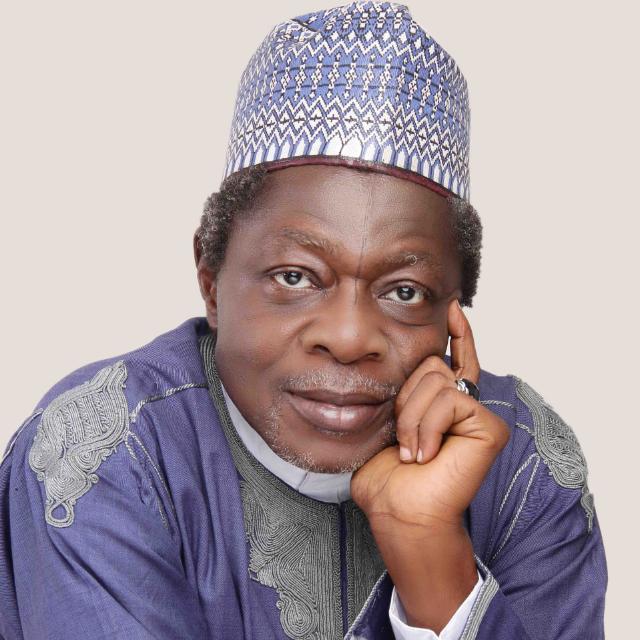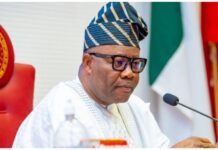President Muhammadu Buhari’s followers, therefore, created in him an image of an ascetic, beyond reproach, and so canonised him as a saint. And he also did his best to fit into that picture. Ramrod, shed of any fat and wearing the cheapest materials around, the story was that he had seen it all yet refused to be tempted into taking anything from anywhere he worked.
He was a military governor with executive powers over what are now six states and then a federal commissioner of petroleum and later a military head of state. Yet he depended on nothing other than his salary in all these places. Giving strength to those who view him as a man of integrity and high moral standard, he had many times challenged all those who had served in such capacities to come and swear like him that, like Caesar’s wife, they were also beyond reproach. None has picked up the gauntlet – yet.
All this is good. A nation that does not have a person, even if it was one, that it can showcase to the world as the symbol of all that is positive is indeed an unfortunate country and, perhaps, hurtling towards doom. Maybe what went wrong with Nigeria is when people, by all means, want to believe that in a country of 200 million, only one soul is light and all the rest are pitch black.
This was the impression harboured by millions, and still by many. And this view skewed public opinion in the run-up to the 2015 elections. This led to an unprecedented victory for Buhari’s party, during which an incumbent president was bested. His party, overall, trounced the ruling party and had a majority in the National Assembly, more governors and state houses of assembly under its banner.
It was common, especially in the first tenure of the Buhari administration, for people to accuse everybody but the president of any failure in governance. To them, it was the National Assembly that did not want Baba to work, or he was alone. The refrain was that the NASS was sabotaging him, and where his appointees showed incompetence, they would say that “Baba is alone.” Some will add, in indignation, “What can he do without helpers? He can’t be everywhere.”
But are they right? A leader who wants “help” will appoint those who can help. The moment they are not rendering that “help”, people expect them to be shown the exit door and replacements brought in. But here, that does not happen except if the public forces a change, as we saw in the case of the service chiefs or when circumstances forced them to resign, as with Kemi Adeosun, erstwhile finance minister.
This made Hajiya Zainab Suleiman Okino, a veteran journalist and columnist with Blueprint newspaper, ask: “Why does the Buhari government indulge some people in his administration even when they have not performed maximally? They say he (the President) trusts easily, but why trust and extend the tenures of people not adding much value to your government? With so many qualified Nigerians, why extend the tenures of government officials that are statute barred?… Since 1999, this is about the first time a president has kept ministers throughout his eight years in office and has constantly renewed the tenures of heads of parastatals and MDAs whose terms have expired even where most of them have failed to perform well.”
That he means well for the country is not in doubt. He is one leader who gives people responsibilities and allows them to express themselves. And he does not keep looking over their shoulders to see what they were doing. He trusts them with responsibilities, and he expects them to vindicate him. He may not even think he should be vindicated; maybe he wants them to show good examples to the people.
And this is where the problem lies. Many think he trusts a lot. And in most cases, those he has confidence in disappoint him and the people. Or maybe just the people, because hardly does he complain. Some say he is a shy person, the hallmark of a typical Fulani man.
All right, he means well and is desirous to leave behind a positive legacy, if not in anything, at least in how elections are conducted. Not only from his body language and statements but even his government’s policies also lend credence to that fact. Many people may be shocked but the nation would have him to thank while the international community would hail him as it did for General Abdulsalami Abubakar, General Olusegun Obasanjo and Goodluck Ebele Jonathan.
And contrary to what people think, Buhari has helpers, especially among those he encourages. The Independent National Electoral Commission’s boss, Professor Mahmood Yakubu, a first-class brain, is one. Even though President Buhari once accused the Central Bank governor, Mr Godwin Emefiele, of giving out billions of dollars based on notes written on “ordinary paper” or “bread paper”, he kept him on the job. Now, he is supporting the president’s dream to divorce money from our politics with the naira redesign and withdrawal cap.
The president can, therefore, not be alone. There are many others also who want to help. Honourable Gudaji Kazaure, for instance, is one. He came out with documents accusing the CBN governor of squandering about ₦90 trillion. He has been shouting himself hoarse from one radio station to the other and on television stations.
Honourable Gudaji said he wanted to help the country and the president’s fight against corruption. With that amount, he claims, Nigeria could pay off all its debts and service its needs. And the president’s avowed fight against corruption would get a mighty boost.
Many people expected a sort of inquiry to find out the veracity of his claims. But, perhaps, the honourable member is just a busybody, and no one needs his help.




